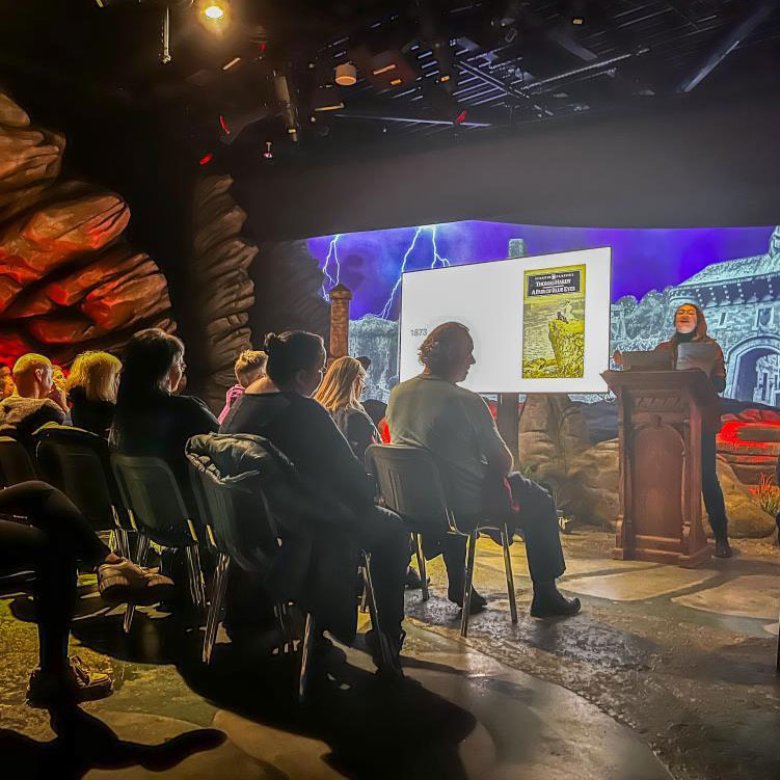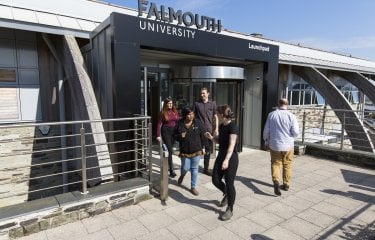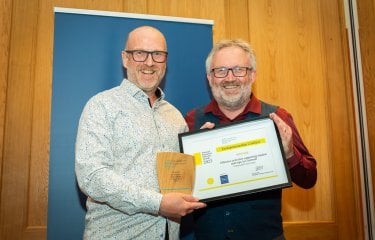‘Dark power’ enveloping Cornish tourism
17 October 2024

As the damp, shadowy corridors of Bodmin Jail echoed with whispers of Cornwall’s haunting past, a group of business owners and tourism experts gathered recently to discuss unleashing a new ‘dark source of power’ that could breathe new life into the region’s future.
The Dark Symposium, hosted by Falmouth University’s Launchpad Futures in collaboration with Bodmin Jail, explored how ‘dark tourism’ can be used to diversify and bolster its existing tourism industry.
Speakers included experts on Cornwall’s Gothic history, ghosts, AI storytelling and tourism, who explained how embracing dark tourism can help Cornwall reclaim its history and tell a more varied story.
Attendees heard how dark tourism’s need for sensitivity and ethical considerations provides a complementary basis for using regenerative tourism to help shape the industry’s future in Cornwall – an approach that seeks to prioritise the long-term well-being of both the environment and local communities.
Dr Natalie Semley, senior lecturer in tourism at Falmouth University, said: “The interesting and exciting potential of creating a ‘dark narrative’ for Cornwall is that it can be about telling the story of our place authentically, ethically, and with care for our communities.
“Dark tourism can provide businesses with an opportunity to differentiate themselves in the market, and for Cornwall to diversify their offer because these types of visitors are not primarily motivated by sun, sea and sand. They are seeking out education, understanding, and experiences.”
Attendees were treated to rich, evocative tales of Cornwall’s Gothic past from Dr Joan Passey, an expert in Cornish Gothic literature and a former student of Falmouth University. She highlighted how Cornwall has long been associated with eerie landscapes and strange tales in the works of Victorian authors, while Victorian-era travel writing cast the county as an isolated and mysterious land.
These stories weren’t just fanciful. They were a reflection of the late arrival of the railway, and Cornwall’s position as a place apart from the rest of Britain – but they weren’t stories owned or created by the Cornish.
“Gothic narratives are not just about providing a scary thrill to tourists,” Dr Passey noted. “They are part of Cornwall’s identity, a lens through which we can examine history, and an opportunity to tell a story differently.”
Dark tourism can be compelling and rewarding for hosts and tourists. Tapping into human curiosity, inviting visitors to explore places associated with death, disaster, and the macabre. Yet, as the event made clear, dark tourism must be handled with care.
Given the sensitivities, the importance of storytelling as a tool for reinvention was highlighted.
Dr E Jay Massey highlighted that ghost stories are powerful tools that allow visitors to engage with Cornwall’s past while reflecting on the broader social and cultural issues that continue to shape the region.
With AI a consideration for all businesses, Falmouth University’s Dr David Devanny explored the use of AI and spoke of the need to be careful to avoid the stereotypes such technology can generate. For all the need to be aware of ethical considerations, Falmouth University’s Professor Ruth Heholt called on attendees to use dark stories to “animate the ordinary” and allow humour into the conversation.
Jess Marlton, general manager at Bodmin Jail, said: “We’re delighted to host this event and bring together like-minded businesses to explore the potential of our rich, dark history. This event is the first of a series with Falmouth University, and we hope it leads to individual and collaborative efforts that place our dark past at the heart of our tourism industry.”




